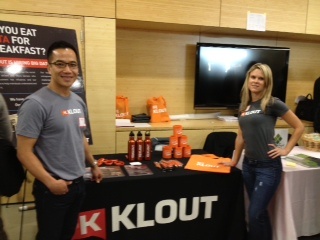
The Stanford Computer Forum hosts a semi-annual career fair. Dozens of companies set up a booth behind Gates (the CS building) and vie for the attention of Stanford CS students.
It’s not cheap to reserve a recruiting spot at the Computer Forum. A company will only do so if they think there’s a reasonable chance of landing a Stanford grad as an employee.
Half a decade ago, the career fair was littered with prospective employers from Wall Street. Merrill Lynch, Goldman Sachs, the big players, as well as hedge funds that were really just a bunch of 20-somethings with a trust fund and some printer ink. They were there to recruit because high finance was where Stanford CS grads wanted to work.

This year, you can count the trading shop booths on one hand. Other notable absentees include McKinsey, Bain, and company. They have been replaced with Twitter, WhatsApp, and SnapChat.
Don’t worry, the investment banks will be back after the startup bubble bursts. Everyone wants to employ a Stanford CS grad. Stanford grads are reasonably bright and will attract more Stanford students in the future. More importantly, they’re the most risk-averse people in the world.
Goldman Sachs, Google, and Facebook all claim to recruit the “best and brightest”, but they really don’t. Anyone who accepts a job at a zero-revenue company run by a 23-year-old is certainly not the brightest.
What are they really trying to recruit?
Look at the perks these companies offer: Housing stipend for living within 5 miles of the office. Time spent commuting is time spent NOT WORKING. Catered lunch and dinner. You’ll be too fat to run away. Company trips to Tahoe and other destinations. And we make sure your coworkers accompany you on vacation so that you hate going on vacation. Bring your pets to work. We’d really like to just have you live in the office, but that violates zoning regulations.
Recruiters want risk-averse schlubs who will work long hours and tolerate extended abuse. Stanford CS grads are a self-selecting group. The students who weren’t averse to risk dropped out and started their own companies a long time ago.